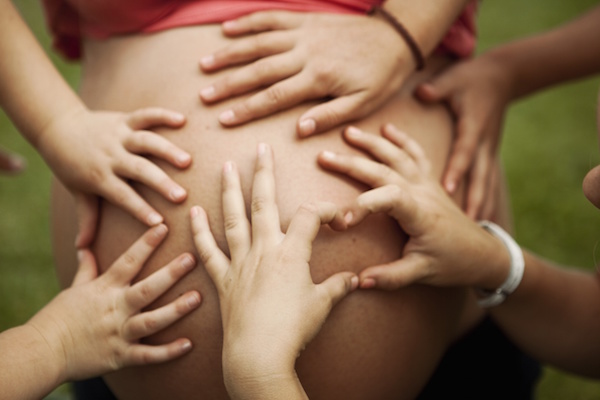
MONDAY, Oct. 31 (HealthDay News) — By signing an affidavit that says “all or some immunizations are contrary to my beliefs,” California parents can bypass requirements that their children be fully immunized before attending school, and new research indicates that many are choosing to do so.
The new study shows that at some “hot spot” schools, one out of every five kindergarten students is now going unvaccinated by parental choice — putting not only these kids at risk of preventable infectious diseases, but also other children at the school.
These are schools “where we might be concerned that ‘herd immunity’ has been compromised,” warned lead study author Alison Buttenheim, an assistant professor in family and community health at the University of Pennsylvania School of Nursing.
“Herd immunity is the protection offered to unimmunized people when most people are immunized or otherwise unsusceptible,” she explained. “For example, our herd immunity against measles protects infants, up to age 1, who are too young to receive the MMR [measles, mumps, rubella] shot.”
Buttenheim added that “schools are an important site of exposure for children. All of our measures point to increasing exposure to intentionally unvaccinated children among California kindergarteners, a worrisome trend.”
The new finding was slated for presentation Monday at the annual meeting of the American Public Health Association in Washington, D.C. It comes on the heels of recent U.S. Centers for Disease Control and Prevention (CDC) findings that with more unvaccinated kids, the United States is now experiencing its largest measles outbreak in 15 years. Experts have also blamed a recent resurgence in cases of whooping cough (pertussis), especially in California, on declining child vaccination rates.
Twenty states currently allow “personal belief exemptions” when it comes to child vaccinations: Arkansas, Arizona, California, Colorado, Idaho, Louisiana, Maine, Michigan, Minnesota, New Mexico, North Dakota, Ohio, Oklahoma, Oregon, Pennsylvania, Texas, Utah, Vermont, Washington and Wisconsin.
In the new California study, researchers analyzed state health department figures on personal belief exemptions among kindergartners. Some schools had much larger proportions of these children than others, raising concerns that clusters of unvaccinated children might lead to outbreaks of diseases like measles, mumps and rubella.
The researchers deemed as “hot spots” schools where more than 20 of 100 children claimed personal belief exemptions.
The researchers found that in 2010, for every 100 children in a California kindergarten, 2.3 had bypassed immunization due to one or more personal belief exemptions. These exempted children tended to cluster in certain schools, typically attending schools where an average of almost 16 of every 100 of their peers also claimed exemptions.
In some schools, more than one in five kindergartners had parental exemptions for vaccination, the study found. More than 7,000 kindergarteners across California attended these schools, including 2,700 who were exempted.
“This looks like an important study, one that’s consistent with what we’ve been learning about philosophical and personal exemptions,” said Dr. Lance Rodewald, director of the immunization services division at the CDC. “Studies done in the past show that the easier it is to get an exemption, the more likely a child will get one. Other studies show that the easier it is to get an exemption, the lower the coverage levels.”
Rodewald said climbing exemption rates can have far-reaching consequences — even for children who get vaccinated.
“It does matter for non-exempted children. While with measles vaccination, one dose gives 95 percent protection, the pertussis [whooping cough] vaccine is very good but not perfect. Pertussis wears off over time. [So] even if a child was vaccinated, it’s still possible to get pertussis,” Rodewald explained. “With a lot of exempters, you can attract an outbreak. We’re seeing a lot of pertussis right now.”
Buttenheim agreed. “Making sure your children are up to date on the recommended immunization schedule is an easy, safe and effective way to protect your child’s health,” she said. “However, no vaccine is 100 percent effective. Your vaccinated child still has a very small — but not zero — probability of contracting a vaccine-preventable disease if exposed.”
So why the rise in parents opting not to vaccinate their children?
“Parents choose not to vaccinate for many reasons,” Buttenheim said. “To generalize across this diverse group, they perceive the risks associated with vaccines to be greater than the risks associated with vaccine-preventable diseases. While there is a very strong scientific consensus that this calculation is not correct, we cannot simply ignore or dismiss parental vaccine hesitancy.”
One big contributor has been the (now discredited) notion that the measles-mumps-rubella shot might raise autism risk. In 1998, a small but widely publicized study appeared to link childhood MMR vaccination to nine cases of autism. The study appeared in the medical journal The Lancet, which retracted the study in 2010. In January of this year, an investigation by another leading British journal, BMJ, denounced the findings as deliberately fraudulent. But the damage was done.
That, and worries about thimerosal, a mercury-containing preservative once widely used in vaccines, has contributed to parents’ fears.
Not all kids with personal belief exemptions are left fully unvaccinated, Buttenheim noted. “We are only able to say whether they have exemptions from one or more vaccines. Children we observe as having personal belief exemptions may have not done, for example [diphtheria, tetanus and pertussis] vaccination, but may be up to date on MMR.”
“In general, parents do value vaccines but exemptions do happen,” said Rodewald, who is a pediatrician. “Parents have a lot of questions and they want to make sure that vaccines are effective and safe. It’s important that health professionals like pediatricians, nurse practitioners and school nurses be able to answer questions for parents so they can make informed decisions; decisions of knowledge and strength.”
Because the new study was presented at a medical meeting, the data and conclusions should be viewed as preliminary until published in a peer-reviewed journal.
More information
The U.S. National Institute of Allergy and Infectious Diseases illustrates how herd immunity works.

